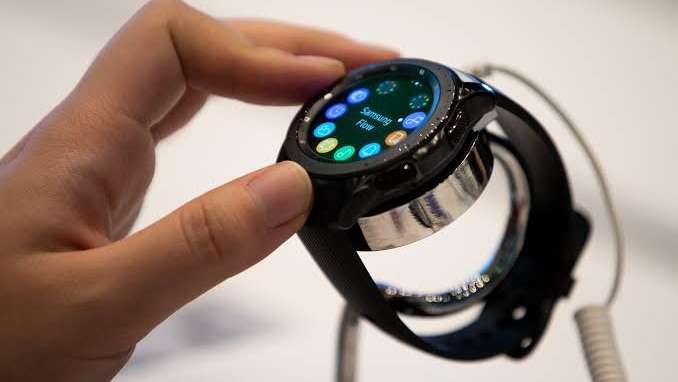
In a surprising and daring move, technology behemoth Samsung is rumored to be exploring the possibility of entering an entirely new segment of wearables, signaling a potential shift in the landscape of the industry. With a long-standing domination in the smartphone market and established success in the smartwatch arena, the reports of Samsung's interest in diversifying its wearable offerings have sparked curiosity and excitement among tech enthusiasts and industry analysts.
Although the specifics of this new wearable category have been kept under wraps, reputable sources suggest that Samsung is venturing beyond the realm of traditional smartwatches and fitness trackers. Speculations abound regarding potential innovations, with experts musing over possibilities such as smart glasses, augmented reality (AR) headsets, or even health-centric wearables featuring cutting-edge biometric capabilities.
If these rumors hold true, Samsung's foray into a new wearables category could pose a significant challenge to competitors in the tech space. Leveraging its extensive resources, global reach, and a proven history of successful product launches, the South Korean giant has the potential to disrupt the existing wearables market and set new trends.
As wearable technology becomes increasingly pervasive and integrated into various aspects of daily life, consumers are seeking products that seamlessly blend into their lifestyles while offering novel functionalities. Samsung's potential entry into a different segment of wearables could cater to these evolving demands and open up fresh possibilities for users, whether in productivity, entertainment, or health and wellness domains.
However, embarking on an uncharted territory comes with its share of risks and uncertainties. While Samsung has demonstrated its prowess in innovation, the company will need to address potential challenges such as user privacy concerns, design and form factor considerations, and compatibility with existing ecosystems.
One potential area of exploration for Samsung could be smart glasses or AR headsets. These devices have seen significant advancements in recent years, with the promise of overlaying digital information onto the real world. This technology has diverse applications, ranging from enhancing productivity in the workplace to transforming the way we consume media and entertainment.
Another potential avenue for Samsung's new wearable category could be health-focused wearables with advanced biometric capabilities. With an increasing emphasis on personal health and fitness, consumers are keen on wearable devices that provide more accurate and comprehensive health data. By incorporating advanced biometric sensors and health tracking features, Samsung could cater to this growing demand and empower users to take better control of their well-being.
Despite the potential opportunities, the development of innovative wearables is no easy task. Samsung will need to invest substantial time and resources in research, development, and testing to ensure the seamless integration of technology into users' lives. Moreover, striking the right balance between functionality, style, and comfort will be crucial to winning over consumers in an increasingly competitive market.
As of now, Samsung has neither confirmed nor denied the speculations surrounding its potential venture into a new wearables category. The tech community eagerly awaits official announcements or product teasers that might shed light on the company's plans and provide a glimpse of what the future of wearables holds.
Final Note
Samsung's exploration of a whole new segment of wearables marks a pivotal development in the tech industry. Whether it's smart glasses, AR headsets, or an entirely unexpected innovation, the company's move could reshape the wearables landscape and offer consumers a new wave of pioneering, tech-driven experiences. As the market holds its breath for further updates, only time will reveal the true extent of Samsung's ambitions in this promising frontier of wearable technology.



Leave a Reply